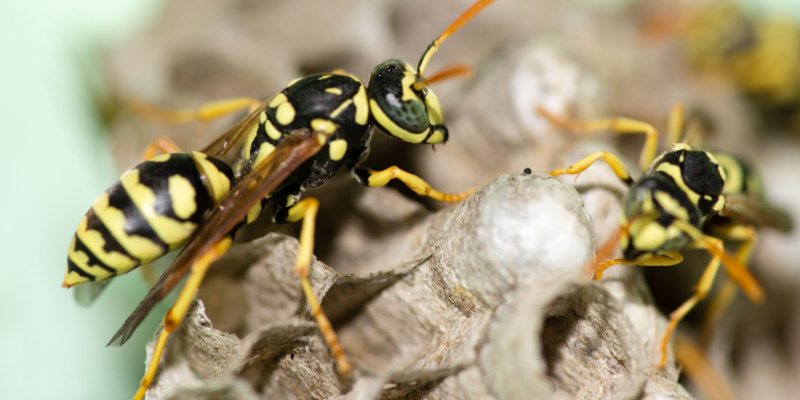In the picturesque region of Bergen County, New Jersey, nature thrives in all its splendor. However, alongside the beauty of this area lies the potential for bee and wasp infestations, which can pose risks to humans. These buzzing insects, while playing important roles in pollination, can become unwelcome guests when their populations grow out of control. Read on to discover various methods for managing and controlling bee and wasp infestations in Bergen County, ensuring harmony between these creatures and the local community.
1. Identification of Bee and Wasp Species
Before implementing any control methods, it is essential to identify the bee and wasp species present accurately. Honeybees, bumblebees, paper wasps, yellow jackets, and hornets are commonly found in Bergen County. Proper identification will help determine the appropriate control measures, as different species may require different approaches.
2. Prevention Techniques
Prevention is the first line of defense against bee and wasp infestations. Ensure that garbage cans and compost bins are tightly sealed to eliminate potential food sources. Seal cracks and crevices around buildings, as these can serve as entry points for nesting insects. Regularly inspect eaves, attics, and outdoor structures for nests, removing them promptly if found.
3. Habitat Modification
Create an environment that is less attractive to bees and wasps. Trim overgrown vegetation, as some species prefer nesting in dense shrubs. Plant bee-repelling herbs such as mint, eucalyptus, and citronella in your garden. By modifying the habitat, you can discourage these insects from taking up residence on your property.
4. Non-Lethal Removal
For bee species that are essential pollinators, consider non-lethal removal options. Contact local beekeepers who may be willing to relocate honeybee colonies. It is important to work with professionals who can safely and responsibly remove bees, ensuring their survival and contribution to the ecosystem.
5. Traps and Baits
Traps and baits can be effective tools for managing wasp populations. Commercial traps are available, which use attractants to lure wasps away from high-traffic areas. However, caution must be exercised when using traps, as they can inadvertently attract more wasps to your property.
6. Insecticidal Dust
Insecticidal dust can be applied to bee and wasp nests in hard-to-reach areas. These dusts penetrate the nests and eliminate the insects within. It is important to use these products carefully, following manufacturer instructions, and considering the potential impact on non-target insects.
7. Professional Pest Control Services
When bee and wasp infestations become unmanageable or pose a safety threat, it is necessary to seek assistance from professional pest control services. Pest management experts have the knowledge and tools to safely handle infestations while minimizing harm to beneficial insects and the environment.
8. Protective Clothing and Equipment
For DIY nest removal or maintenance, always wear appropriate protective clothing, including a beekeeping suit or clothing with thick fabric. Additionally, protective equipment such as gloves and a veil should be worn to prevent stings.
Bee and wasp control in Bergen County requires a balanced approach that safeguards both human safety and the well-being of these pollinators. Whether through non-lethal removal, traps, or professional assistance by Abarb Pest Services, the goal is to achieve a thriving ecosystem where bees and wasps play their vital roles without causing undue harm or inconvenience.
